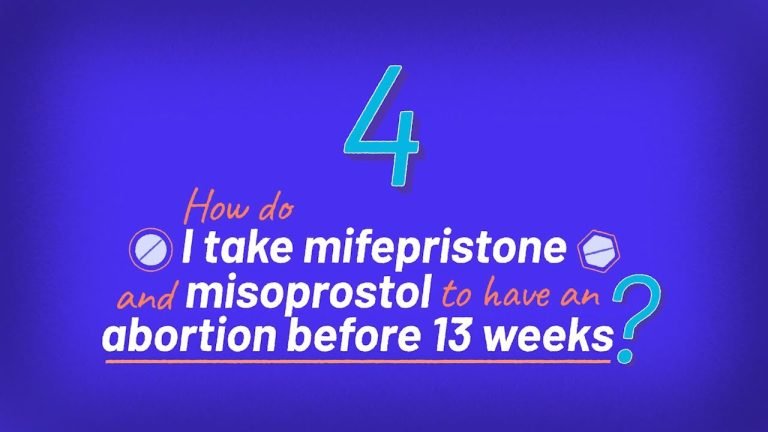Misoprostol: Understanding the 24-Hour Waiting Period

If you're considering taking misoprostol for medical reasons, you might be wondering: do I have to wait 24 hours before taking it? This common question often arises due to conflicting information online. In this article, we'll address this concern and provide clear, reliable guidance on the timing of misoprostol administration. Whether you're seeking abortion care or using it for other medical purposes, we'll help you understand the best practices for taking misoprostol without unnecessary delays.
Do I have to wait 24 hours to take misoprostol after taking mifepristone?
No, you do not have to wait 24 hours to take misoprostol after taking mifepristone. According to the FDA-approved regimen for medication abortion, you should take misoprostol 24 to 48 hours after taking mifepristone. This combination of medications is used to terminate an early pregnancy. It is important to follow the specific instructions provided by your healthcare provider for the most effective and safe use of these medications.
What are the potential side effects of misoprostol?
Misoprostol, commonly used for medical abortion and to prevent stomach ulcers, may cause potential side effects such as diarrhea, nausea, vomiting, and stomach cramps. In some cases, it can also lead to headache, dizziness, and excessive bleeding. While these side effects are generally temporary and mild, it is important to seek medical attention if they become severe or persistent. Additionally, misoprostol should not be used during pregnancy as it can cause serious birth defects. Always consult a healthcare professional before using misoprostol to understand and minimize potential side effects.
How effective is misoprostol in terminating a pregnancy?
Misoprostol is a highly effective medication for terminating a pregnancy, particularly when used in combination with mifepristone. It is a safe and accessible option for ending a pregnancy, especially in settings where access to surgical abortion may be limited. Misoprostol works by causing the uterus to contract and expel the pregnancy tissue, and it is commonly used in both first and second trimester abortions. Additionally, it has been found to be effective in 85-90% of cases, making it a reliable choice for individuals seeking to end a pregnancy.
Are there any restrictions on eating or drinking before taking misoprostol?
Yes, there are certain restrictions on eating and drinking before taking misoprostol. It is recommended to avoid eating or drinking anything for at least 30 minutes before taking the medication. This is to ensure that the medication is absorbed properly and has the desired effect.
Additionally, it is important to follow the specific instructions provided by your healthcare provider or the medication label. They may have specific guidelines for when and how to take misoprostol in order to maximize its effectiveness and minimize potential side effects. It is important to carefully follow these instructions to ensure the best possible outcome.
In summary, it is advised to avoid eating or drinking for at least 30 minutes before taking misoprostol and to follow the specific instructions provided by your healthcare provider or the medication label. By adhering to these restrictions and guidelines, you can help ensure the medication is absorbed properly and has the desired effect.
Navigating the Legal Landscape: Misoprostol and the 24-Hour Waiting Period
In the legal landscape of reproductive rights, the issue of the 24-hour waiting period for obtaining Misoprostol is a contentious one. Advocates argue that this waiting period places an undue burden on individuals seeking reproductive healthcare, particularly those in rural or underserved areas. They argue that it restricts access to safe and timely abortion care, leading to potential health risks for individuals who are unable to obtain the medication within the required timeframe. Navigating this legal landscape requires a careful examination of the impact of the 24-hour waiting period on individuals' access to reproductive healthcare, and a continued push for policies that prioritize the health and autonomy of those seeking abortion care.
As the debate around Misoprostol and the 24-hour waiting period continues, it is crucial to consider the real-world implications of these legal restrictions. Research has shown that waiting periods can lead to delays in accessing abortion care, which can in turn increase the risks associated with the procedure. In addition, the logistical challenges of obtaining Misoprostol within a 24-hour timeframe can disproportionately affect low-income individuals and those living in remote areas. Navigating the legal landscape of reproductive rights means recognizing these barriers and advocating for policies that prioritize equitable access to safe and timely abortion care for all individuals, regardless of their geographic location or socioeconomic status.
Patient Empowerment: Making Informed Choices with Misoprostol and the 24-Hour Waiting Period
Patient empowerment is at the heart of informed decision-making when it comes to using Misoprostol and navigating the 24-hour waiting period. By providing patients with comprehensive information about the medication and the waiting period, they can make educated choices that align with their individual needs and circumstances. This approach ensures that patients are equipped with the knowledge and agency to take control of their reproductive health, ultimately leading to better outcomes and experiences.
Misoprostol, coupled with the 24-hour waiting period, presents an opportunity for patients to actively participate in their reproductive healthcare journey. By understanding the purpose and effects of Misoprostol, as well as the rationale behind the waiting period, patients can confidently navigate their options and make decisions that are best for them. This collaborative approach between healthcare providers and patients fosters a sense of empowerment, allowing individuals to take charge of their reproductive health and make informed choices that align with their values and goals.
In conclusion, it is important to consult with a healthcare provider before taking misoprostol, especially when used for medical abortion. While some sources may recommend waiting 24 hours before taking the second dose, it is crucial to follow the specific instructions provided by the healthcare provider to ensure safety and effectiveness. Always prioritize your health and well-being by seeking professional guidance when considering the use of misoprostol.
